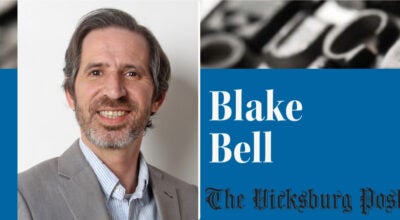If we are to have a state lottery, let’s use the funds how we’re told they will be used
Published 6:39 pm Saturday, May 6, 2017
We have heard this story before in Mississippi.
But, unlike the previous stories, we have a pretty good idea how this one ends.
In 1988, Congress passed the National Indian Gaming Act, which led to the development of casinos by the Mississippi Band of Choctaw Indians in Neshoba County by 1994.
In 1990, the Mississippi Legislature passed the Mississippi Gaming Control Act, which opened the door to the development of casinos along costal counties and those along the Mississippi River, including Warren County.
Today, legalized casino gambling operates in Neshoba, Tunica, Washington, Adams, Hancock, Harrison and Warren counties.
At the time of the approval, many believed the tax revenues generated from the non-indian casinos would support the state’s public education system.
That is not exactly the case.
Today, there is a 12 percent gaming tax. That is broken down between the state’s general funds and the counties that are home to casinos.
Eight percent goes to the state, while the remaining four percent goes to the counties, including Adams, Hancock, Harrison, Tunica, Washington and Warren.
Soon, if Gov. Phil Bryant and some state legislators have their way, gambling will exist statewide in the form of a statewide lottery. This time the sales pitch is not education, but highways.
Bryant called for the creation of a state lottery during his state of the state speech earlier this year, but the effort died in the Legislature, mainly at the hands of Speaker of the House Phillip Gunn.
Gunn, a Republican from Clinton, strongly opposes gambling and the creation of a lottery.
But, just this week, Gunn formed what is called the “Lottery Study Commission,” he said is to “gather information to show that the lottery is not the windfall that all its supporters claim it will be.” He also stressed the creation of this commission no way signals he has changed his position on gambling.
That commission just so happens to include Vicksburg Mayor George Flaggs Jr.
Now, Bryant believes the creation of a lottery would help pay for much-needed repairs and upgrades to the state’s highway system. And now, he wants legislators to again debate the issue during a called special session.
Here is where we — as a state — see this story going.
If a lottery is approved under the pretense of generating funds for highway infrastructure projects, we would be wise to fall back on our history.
We learned in the 1990s laws need to be more clearly defined to ensure funds generated go to the project they are intended. If not, we could again see funds fall into the black hole of the state’s general fund.
Whether or not the votes in the 1990s to bring casinos to Mississippi were swayed with the idea of helping the state’s educational system, just imagine how good our schools would be if those tax dollars from casino revenues were being used in the classroom.
In 2016, casinos brought in $2.1 billion in gross revenues. At a 12 percent tax rate, that would be $252 million in tax income for the state.
While we do not have an opinion one way or another yet on the idea of a state lottery, we do believe if a lottery is approved, then the money needs to be used specifically for what we believe.
We have seen this story before, we are just hoping this time, it has a different — more responsible — ending.





